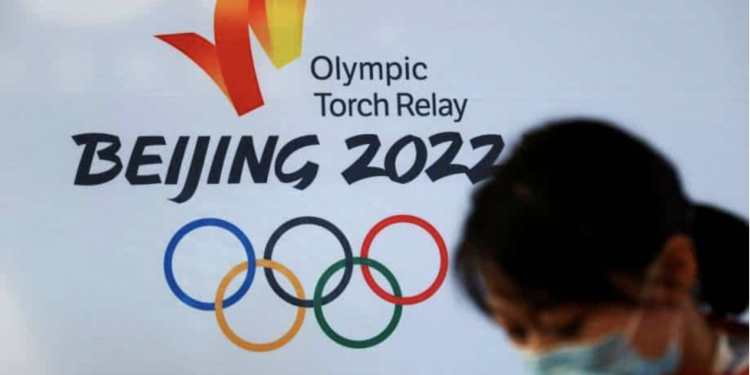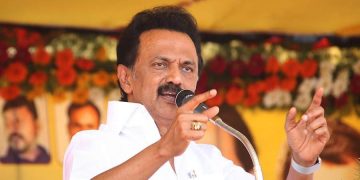The USA, under President Joe Biden, has taken on China head on, announcing diplomatic boycott of the Beijing Winter Olympic Games beginning in less than two months from now. The symbolism of the boycott is so powerful that China has immediately threatened to take ‘counter-measures’ without spelling out the form and shape of its counter-attack. But, it is a political war spilling out of the arena of international sports of the highest calibre. The new face-off shows how the USA’s relations with China and Russia have soured even as the latter two are closing ranks against the former since they began to fill the vacuum created by the US troops pullout from Afghanistan. Predictably, Australia, the UK and Canada have decided to join the USA in the boycott. There is speculation more countries, including some from Europe, will also rally behind the USA to ‘expose’ China for its ‘human rights violations’ in Xinjiang, Tibet and Hong Kong.
For months, human rights groups and some politicians have urged countries to boycott the 2022 Winter Olympics in Beijing over the Chinese government’s alleged rights abuses. The Biden administration said this week that it would not send US government officials to the Beijing Games in protest against China’s ‘human rights violations,’ including its alleged abuses against Uyghur Moslems in Xinjiang province and anti-democratic crackdown in Hong Kong. This diplomatic boycott means the athletes will not be prevented from participating in the Games, but no officials from the USA and countries joining the boycott will attend the proceedings. This would also mean that barring exceptions, most athletes would prefer not to take any personal risks when their own country’s government has taken such a severe stance. The whole exercise has a symbolic value which will eventually hurt the Chinese government. This is more so because President Xi Jinping will be denied the opportunity to showcase China’s achievements in sports under his leadership on the world stage without any controversy diverting the attention from the Games and also score brownie points before his domestic audience, especially amid the COVID-19 pandemic.
Bristling with anger at the potential of the boycott to lower its image internationally, China is trying to put out the message that there is no need to take the boycott seriously as it will not have any “influence on Beijing’s success in hosting the Olympics.” No one has much doubt that the boycott is not going to force China to change its policies of repression in Xinjiang, Tibet or Hong Kong. But, the solid gain that the USA and its allies are calculating to achieve is that China’s ‘record’ of human rights abuse will once again be under international scrutiny in a big way. It may make it even harder for the USA and China to work together on things Beijing and Washington are expected to cooperate on, such as climate change, North Korea or the Iran nuclear deal. But, China has also much to answer for before the international sports bodies for the treatment meted out to its tennis star of international acclaim Peng Shuai, who disappeared from public eye in November after she accused on the social media China’s former vice-premier, Zhang Gaoli, of sexually abusing her. “Even if it is like an egg hitting a rock, or I am like a moth drawn to the flame, inviting self-destruction, I will tell the truth about you,” she said on the social media of the alleged sexual assault on her. The Women’s Tennis Association and some of the world’s top tennis players, including Naomi Osaka and Novak Djokovic, raised concern for her safety. China’s typical response was to downplay the allegation, remove her social media post and comments on it making the allegation of scandal all the more credible.
Olympic boycotts as a political tool were resorted to several times in the past. Though their efficacy may be questionable, they do serve in some measure the purpose they are used for. The last time the US tried it in earnest – with no diplomats, no athletes, no presence at all – was during the 1980 Moscow Olympics to protest the Soviet Union’s Afghanistan invasion. That was a full boycott. Though Moscow did not change its policy, the boycott did blacken the then USSR in the eyes of the international community.
The main objective of the boycott this time around is to contain China using the human rights violations issue at a time when it has become more powerful and wealthier. Earlier, the USA and several of its allies have imposed sanctions on Chinese government officials for actions in Xinjiang and Hong Kong. The USA has passed a legislation to protect democracy in Hong Kong, and the House recently cleared a Bill to limit imports from Xinjiang tied to forced labour. The boycott can create the impression that there cannot be Olympics as usual when there is a serious issue of human rights violation. The Olympic Games may raise the visibility of China’s atrocities. This may mean a small victory, but a victory nonetheless. This may even put pressure on sports bodies such as the International Olympic Committee (IOC) to have second thoughts before accepting offers of hosting from countries like China in future.
This has also posed a grave diplomatic challenge to India. If Indian athletes and officials meekly join and participate in the Games, it could imply that India does not have the moral courage to stand up to a China-Russia-Taliban-Pakistan combination. On the other hand, if India joins the US and boycotts the Games, then it will be a clear message of where this country stands when the chips are down and issues concerning human rights violations are globally discussed.






































